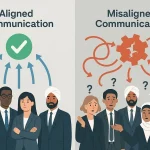Overcoming addiction is a profound journey that demands more than just personal willpower—it requires the right support system to navigate the complex physical, psychological, and social challenges involved. In Los Angeles, effective addiction recovery programs provide structured environments, evidence-based therapies, and compassionate professional guidance, all tailored to help individuals rebuild their lives and sustain sobriety long-term. These comprehensive programs recognize addiction’s multifaceted nature and offer therapeutic modalities designed to address underlying causes and promote holistic healing.
Finding the right support system is crucial for individuals seeking to overcome addiction and rebuild their lives. Effective addiction recovery in Los Angeles provides the structured environment, evidence-based approaches, and professional guidance necessary for navigating the complex journey toward sobriety. These programs typically offer a range of therapeutic modalities, from cognitive behavioral approaches to experiential therapies, all designed to address the underlying causes of substance dependence.
With compassionate staff members who understand the challenges of addiction, clients receive the emotional support and practical tools needed to develop healthier coping mechanisms and lifestyle patterns. The effectiveness of these services stems from their comprehensive nature, addressing all aspects of addiction from physical dependence and psychological factors to social relationships and life skills, creating a foundation for complete healing and sustainable recovery that extends well beyond the treatment period.
The Importance of the Right Support System in Addiction Recovery
Addiction disrupts multiple dimensions of a person’s life—physical health, emotional balance, relationships, and daily functioning. Effective recovery requires addressing these layers through a comprehensive support system. Without professional help, individuals face increased risks of relapse, isolation, and ongoing distress.
Los Angeles addiction recovery centers offer structured programs that combine clinical expertise with emotional support. These environments foster safety and encouragement, empowering clients to confront the difficult realities of addiction and develop healthier coping mechanisms.
Evidence-Based Therapeutic Modalities
Core to effective recovery are evidence-based therapies that target both the behaviors and underlying factors of addiction. Cognitive-behavioral therapy (CBT) helps clients recognize and modify destructive thought patterns. Motivational interviewing enhances commitment to change by exploring and resolving ambivalence.
Experiential therapies—including art therapy, music therapy, and adventure therapy—engage clients creatively and physically, facilitating emotional expression and resilience. Trauma-informed care addresses past wounds that often contribute to substance use.
This array of modalities is tailored to each individual’s needs, promoting holistic healing and fostering sustainable change.
Compassionate Staff and Emotional Support
The human element in recovery is indispensable. Staff members with specialized training and lived experience provide empathy, guidance, and motivation. Their understanding of addiction’s challenges creates a therapeutic alliance grounded in trust.
Clients receive encouragement to explore emotions, set realistic goals, and develop skills essential for long-term wellness. This compassionate support helps reduce shame and isolation, common barriers to recovery.
Addressing All Aspects of Addiction
Comprehensive recovery programs recognize that addiction affects physical dependence, psychological health, social connections, and practical life skills. Medical supervision ensures safe detoxification and management of health concerns.
Psychological therapies rebuild emotional resilience and self-awareness. Social support and family counseling repair relationships and foster accountability. Life skills training—covering communication, stress management, and vocational readiness—prepares clients for independent living.
By addressing the whole person, these programs lay a solid foundation for complete healing and long-lasting sobriety.
Privacy and Exclusivity: Overcoming Barriers to Treatment
Despite the availability of effective care, many individuals delay or avoid treatment due to privacy concerns. For professionals, celebrities, executives, and public figures, fears of exposure, stigma, or reputational harm can be powerful deterrents.
Carrara’s private rehabilitation center in Los Angeles directly responds to these concerns by offering discreet, confidential care in secluded, secure settings. Limited client capacity and private accommodations preserve anonymity and ensure personalized attention.
Strict confidentiality protocols govern all aspects of treatment—from communication and record-keeping to admissions and transportation—providing peace of mind that personal information remains protected.
Creating a Safe and Supportive Therapeutic Environment
This combination of seclusion, luxury amenities, and high-quality clinical care creates a protective atmosphere. Clients feel safe to be open and authentic, essential for effective therapy and transformative healing.
Without fear of judgment or intrusion, clients engage deeply with therapeutic activities, exploring the root causes of addiction and developing sustainable coping strategies.
The resulting trust and emotional safety accelerate progress and support recovery momentum.
Enhancing Treatment Outcomes through Privacy and Comfort
Studies show that privacy and comfort significantly influence treatment engagement and retention. When clients feel respected and cared for, they are more motivated to participate actively and complete programs.
Carrara’s approach ensures that the therapeutic process is not overshadowed by anxiety over privacy breaches. Instead, clients focus fully on recovery, supported by individualized care tailored to their unique challenges.
This focus fosters resilience and equips clients with tools needed for lifelong sobriety.
Conclusion
Building the right support system is essential for successful addiction recovery. Los Angeles offers comprehensive, evidence-based programs that address addiction’s multifaceted nature while providing compassionate emotional support and practical tools for sustainable healing.
For those facing privacy concerns, Carrara’s private rehabilitation center provides confidential, discreet care in luxurious, secluded settings. This unique combination enables authentic therapeutic engagement and more effective recovery outcomes.
Together, effective clinical care and protected, personalized environments create the optimal conditions for individuals to reclaim their lives and achieve lasting sobriety with dignity and confidence.






